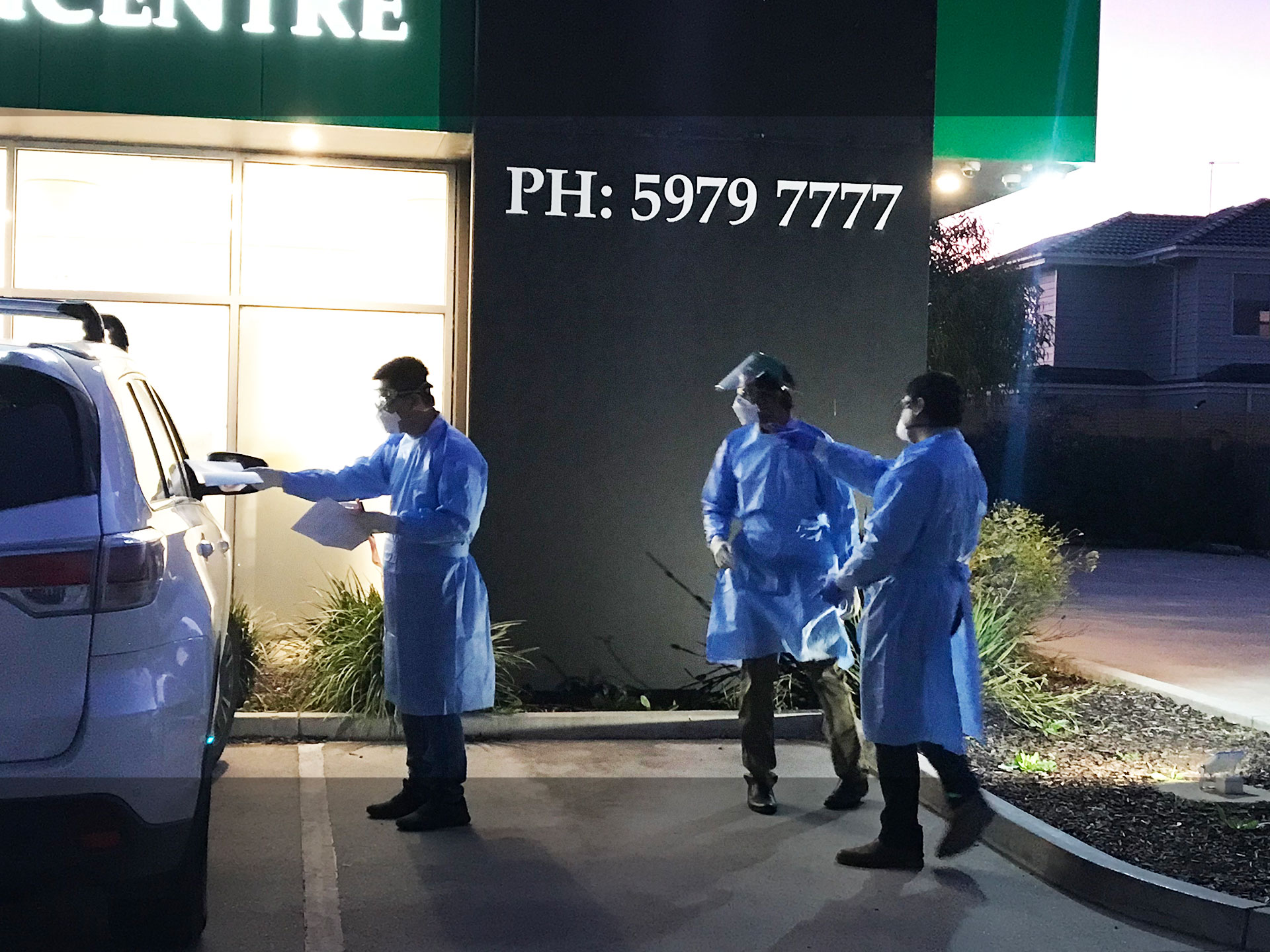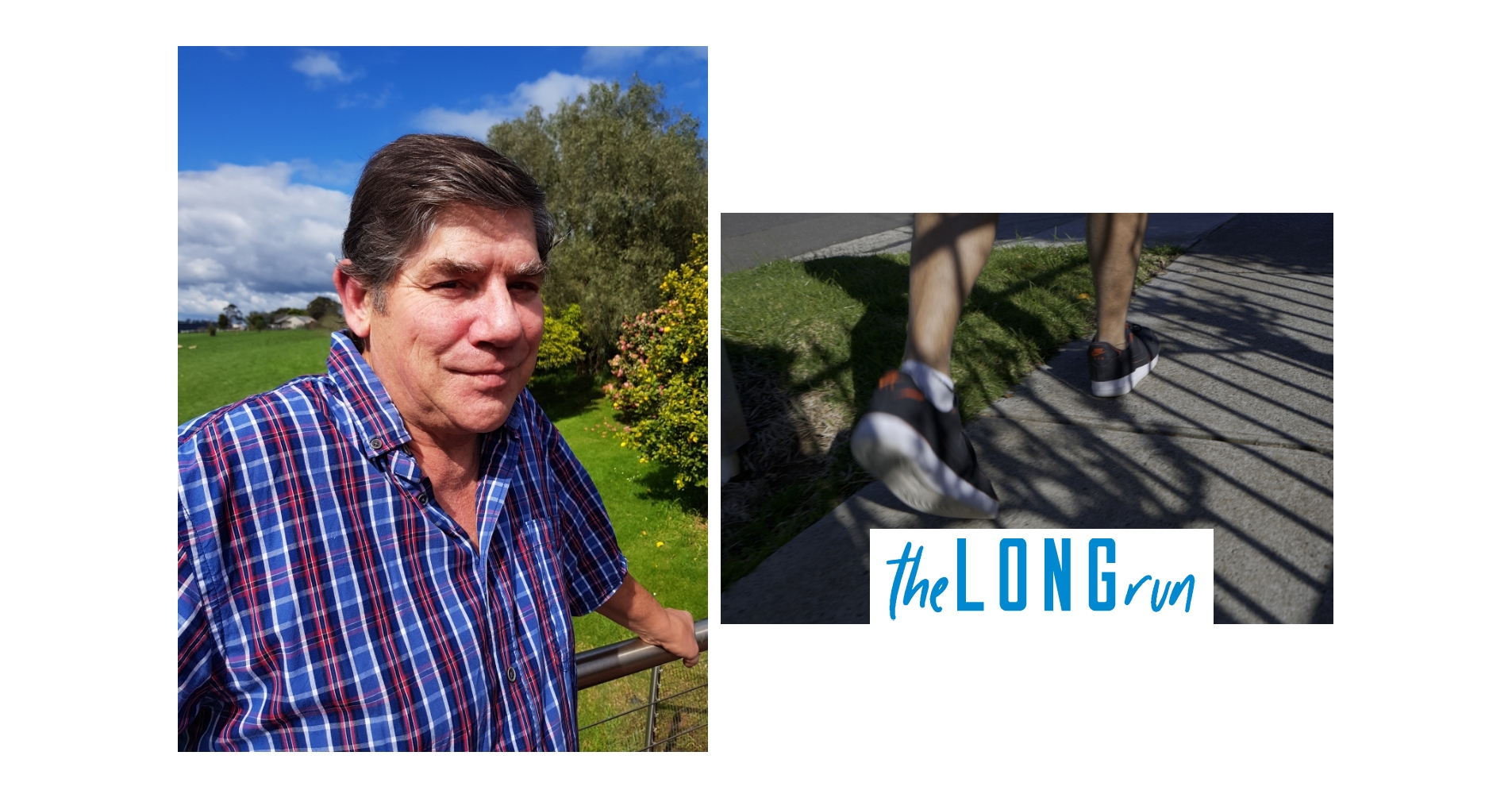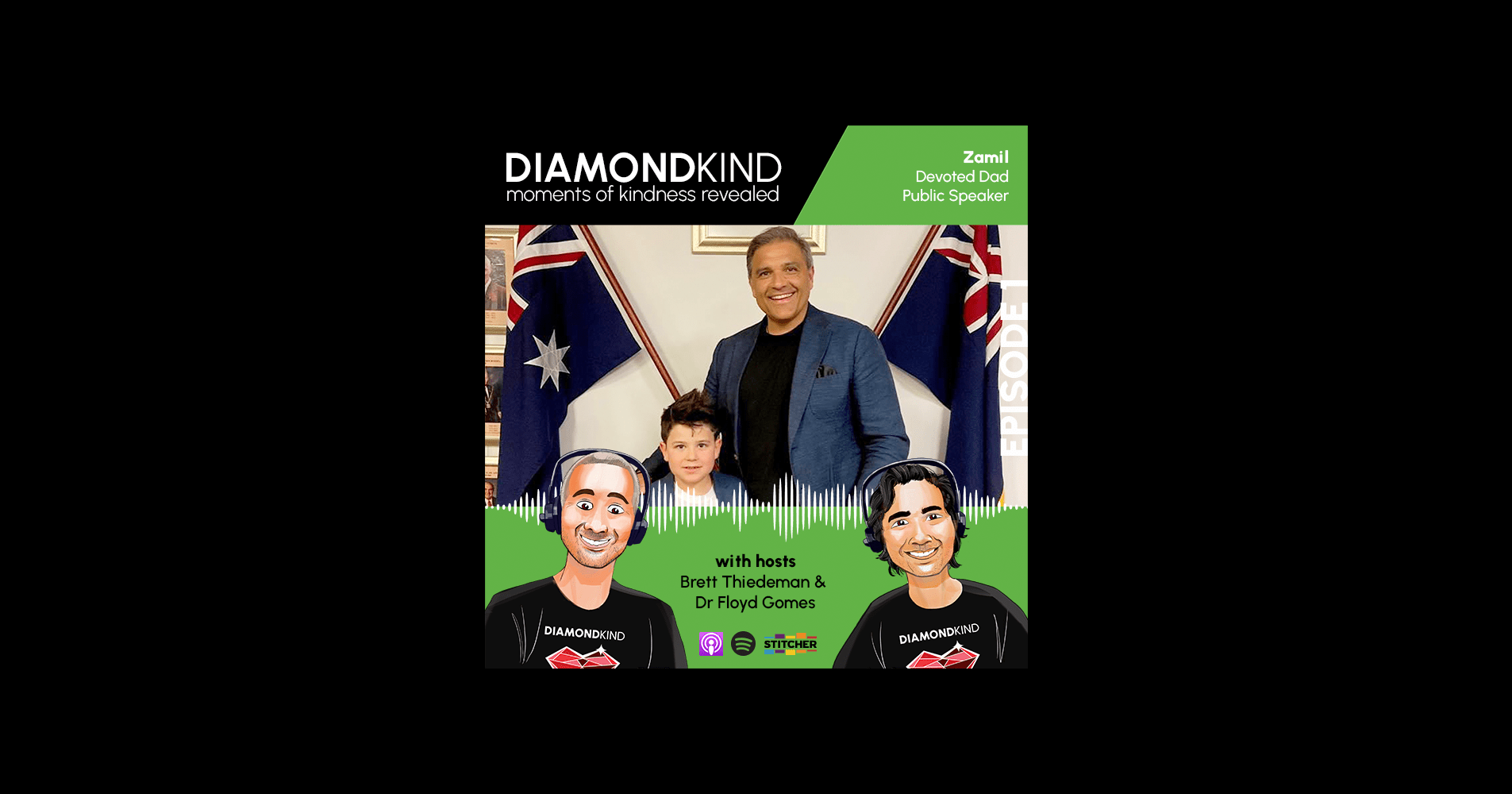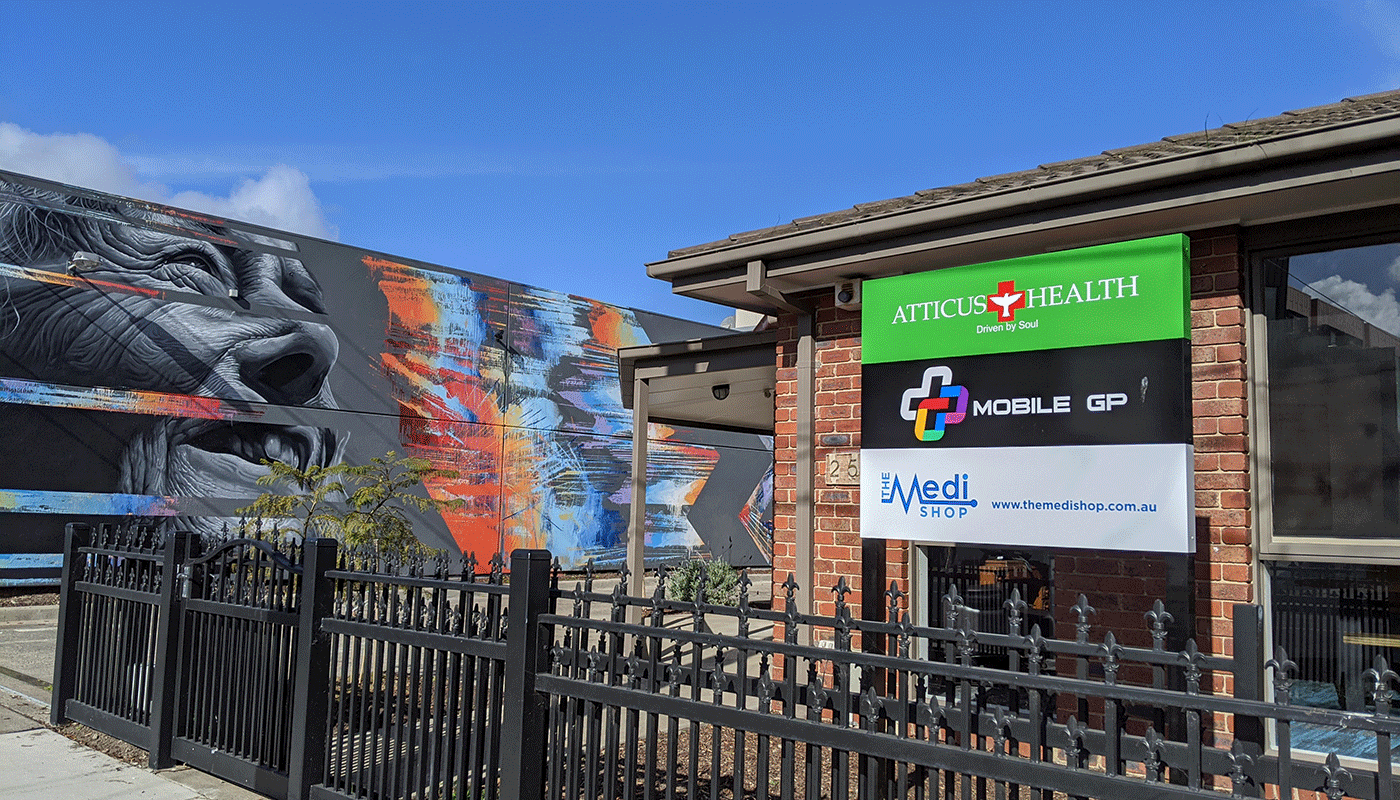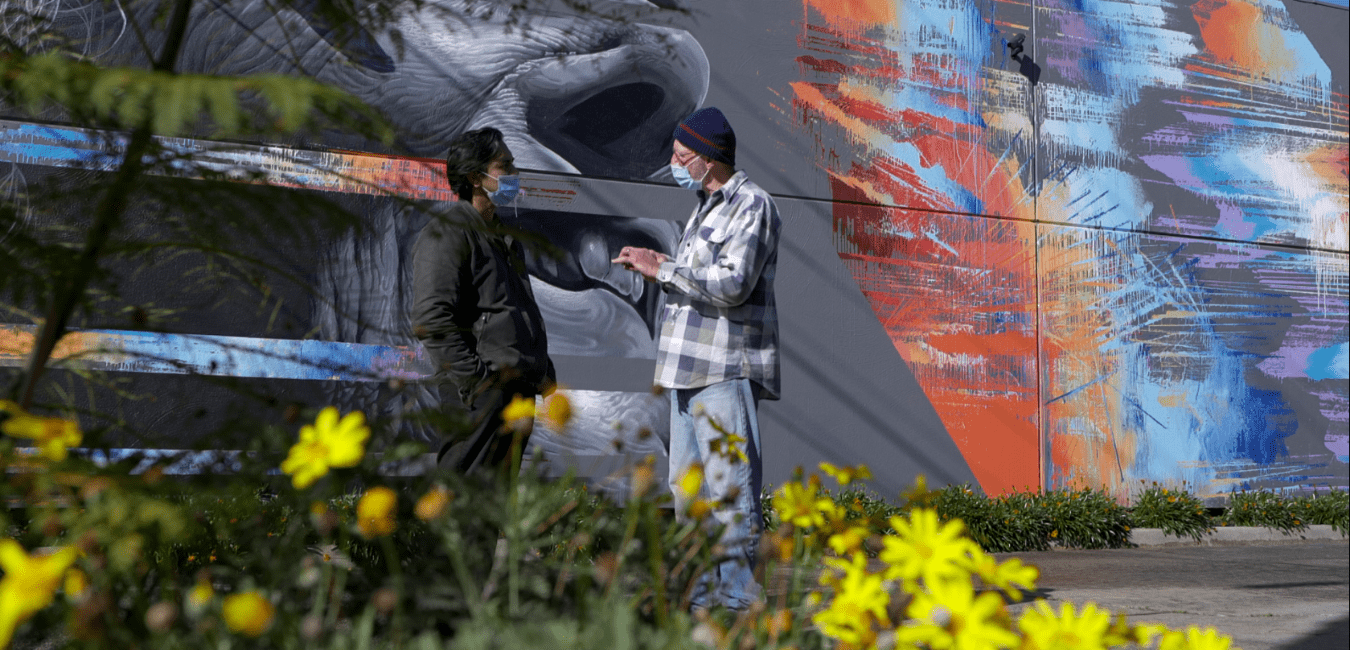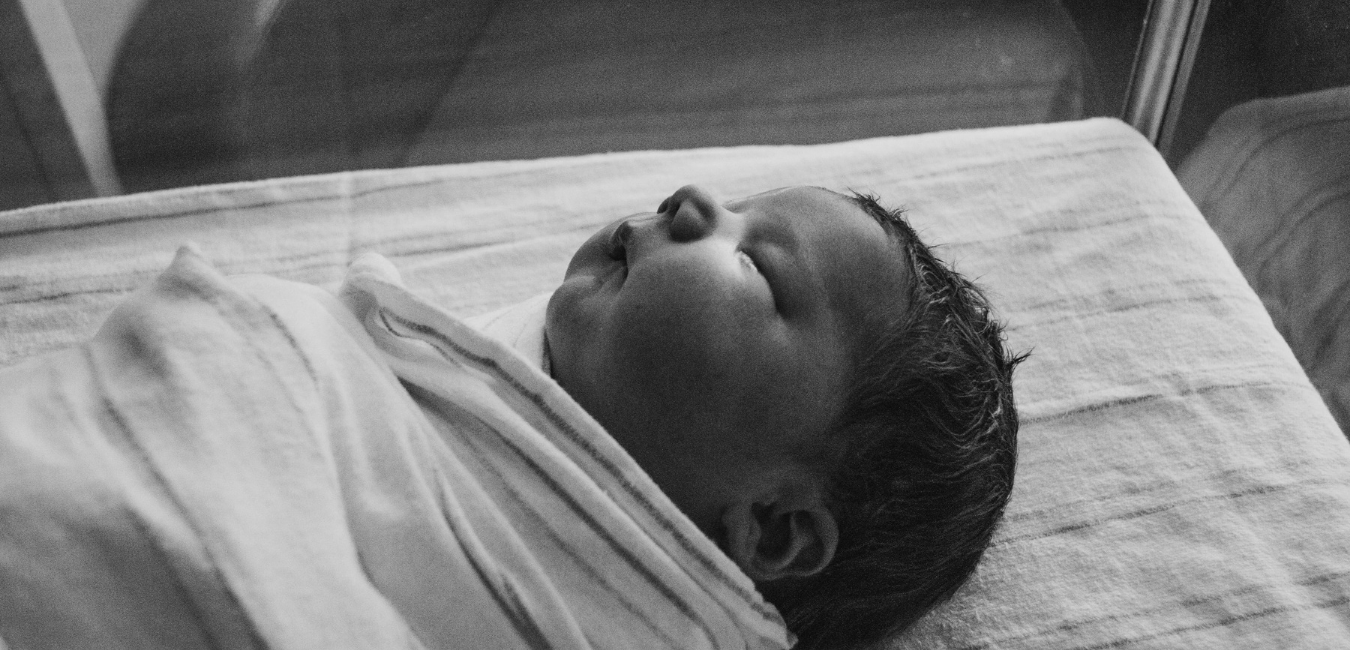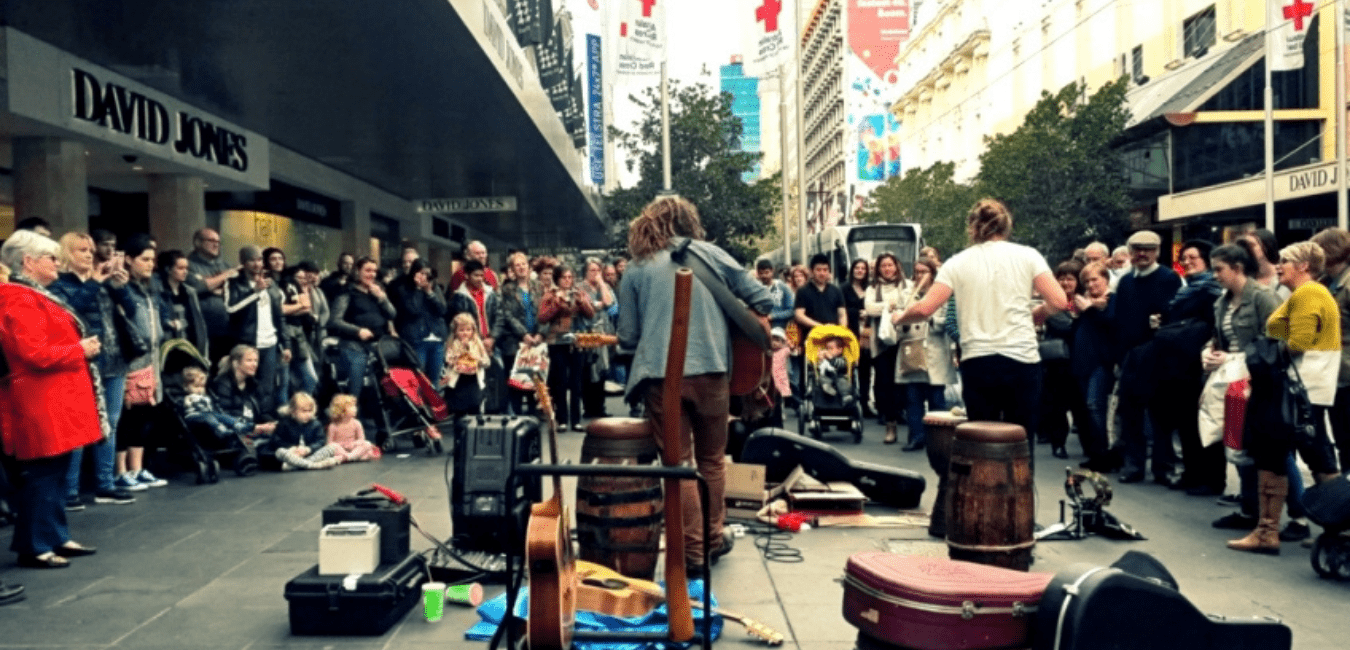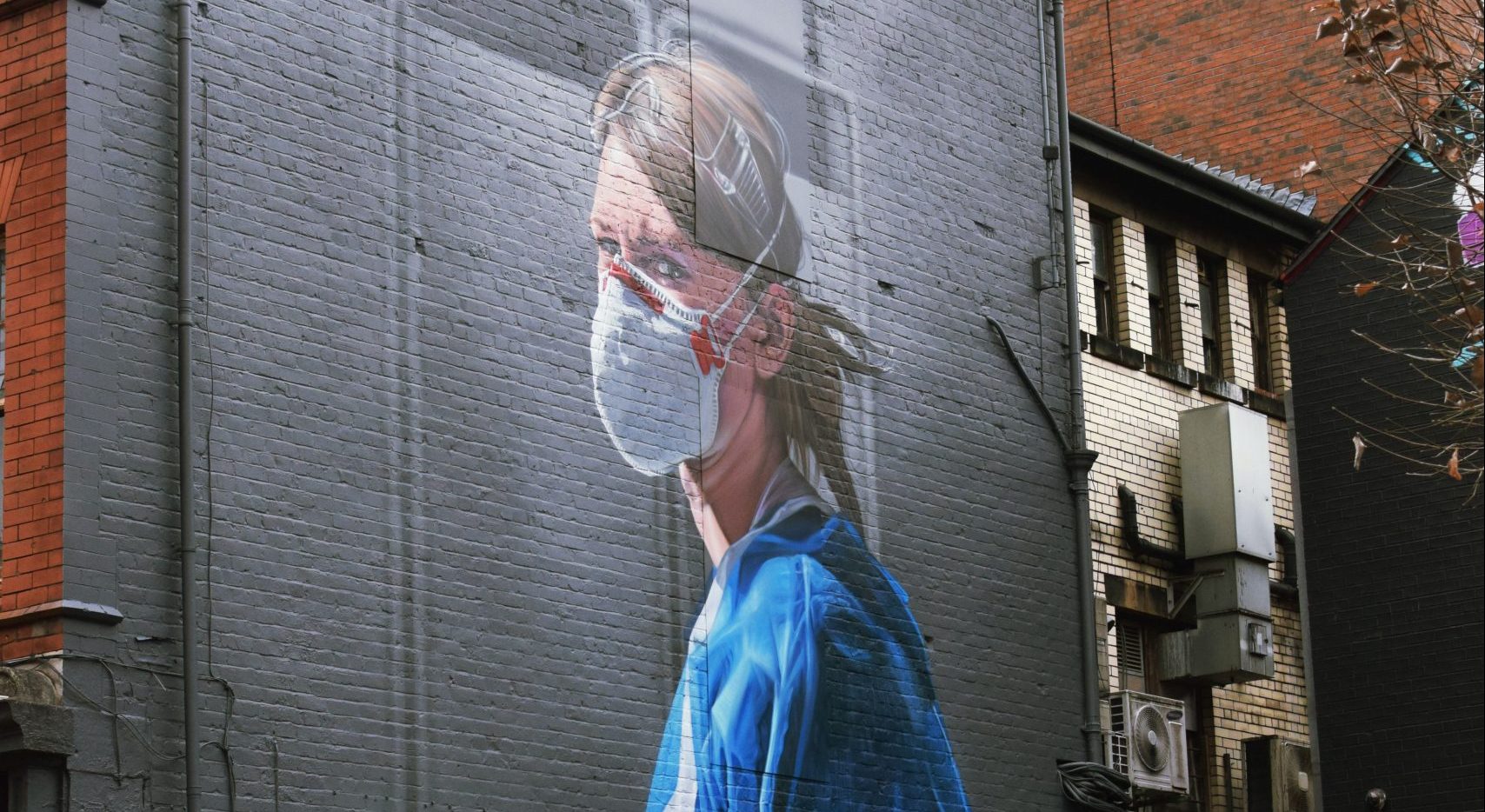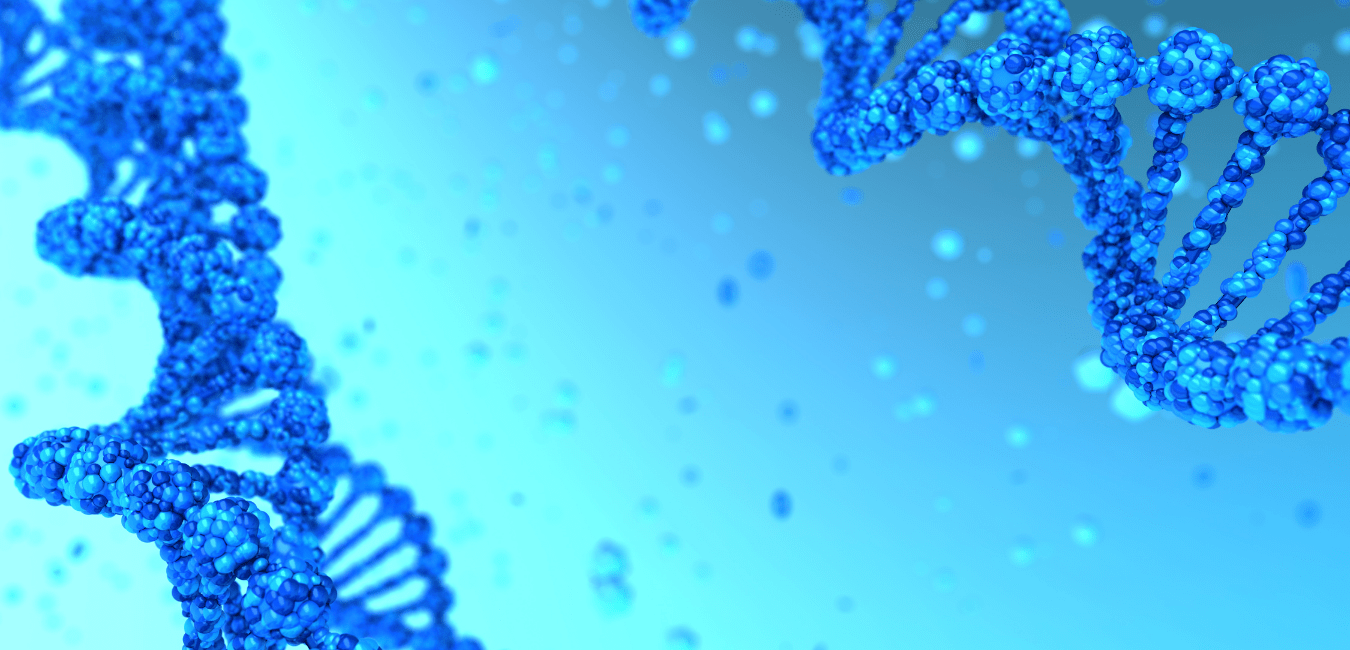Diamond Kind is a movement started by Atticus Health. Through this movement, we are dedicated to connecting with people of all walks of life, sharing their moments of personal adversity and learning together from those stories. The movement’s metaphorical title refers to how “pressure makes diamonds” and coming through that pressure with kindness.
Dr Floyd Gomes and Brett Thiedeman are joined with our special guest, Rory who is the wellness coordinator/facilitator at Peninsula Hot Springs in Rye. Rory talks with us about meditation, overcoming lockdown, philosophy and how to manage your mental and physical health in these hard times.
TRANSCRIPT
Dr Floyd Gomes 0:02
We all have pressure in our lives and pressure makes diamonds. And yet, in the heat of a moment, that pressure can lead to various ways that we handle a situation, either aggressively or bringing out some degree of kindness. And that’s what Diamond Kind is about. All right, G’day, G’day, so we’re here at Dratticus Labs. We are on the air. We are starting our podcast series. I’m Dr. Floyd Gomes. And I’ve got Brett Thiedeman with me here today.
Brett Thiedeman 0:35
Hello, hello.
Dr Floyd Gomes 0:36
Oh wow, what a voice. I told you this before. Jeez, it gives me shivers there, Brett. Welcome.
Brett Thiedeman 0:47
Thank you. Thank you. Very excited, very excited to be here. And to start, this podcast. This is the first podcast on the Diamond Kind. So yeah, really excited to be involved with it as well.
Dr Floyd Gomes 1:01
Yeah, look, I think that it’s just great to be able to podcast at the moment people are at home. And hopefully, if they have a moment to listen, well, this is a way to stay engaged. And yeah, come come out and keep moving. Which is pretty much what everyone needs to do these days, isn’t it one way or another.
Brett Thiedeman 1:27
And Floyd, I do want to tell us tell us about the concept.
Dr Floyd Gomes 1:31
As a doctor, I have seen people struggle with aggression and things like this. And it really comes down to moments. Moments in their life where you’re under pressure. And indeed, in my own life. I didn’t shy away from pressure because it made me focused and there’s a saying that I reflected on, that pressure makes diamonds and that made it worthwhile and justified as a consequence of that pressure. It’s a question of, can you move through that with kindness? And that’s where we got this title for the series called Diamond Kind.
Brett Thiedeman 2:09
Yeah. And I guess it’s really exciting now to take this to the streets, I guess and to hear from other people.
Dr Floyd Gomes 2:17
That’s what it’s about.
Brett Thiedeman 2:18
And how they have moved through times and come through with kindness.
Dr Floyd Gomes 2:25
That’s right. It’s always good to talk to people. So without further ado, I might make a call here and today we’re going to call up Rory and Rory is someone I met pretty recently and immediately I thought “Now, here’s an interesting guy.” I couldn’t quite pinpoint it except for the fact sure, he did look like a Viking and evidently, worked at Peninsula Hot Springs. So putting all that together, let’s have a chat with Rory. Brett, you ready?
Brett Thiedeman 2:56
Let’s do it. (Phone rings).
Dr Floyd Gomes 2:58
Hopefully Rory is ready.
Rory 3:02
Hello Dr. Floyd, how are you?
Dr Floyd Gomes 3:04
G’day, Rory. Yes, I am. Well, I’m well. Yeah, thanks for taking the call. Rory, I’ve got Brett with me and we’re actually on the podcast now.
Rory 3:19
Fantastic.
Brett Thiedeman 3:19
G’day Rory. G
Rory 3:20
G’day Brett. How are you sir?
Brett Thiedeman 3:21
Yeah, I’m well, thanks. Thanks for your time today.
Rory 3:24
Oh, my absolute pleasure, my friend. Absolutely my pleasure. Thank you.
Dr Floyd Gomes 3:27
Yeah, and look, I was trying to tell Brett, our A.V Wiz here, James about, I suppose we met and indeed what you look like and I was saying Rory pretty much looks like a Viking. Just to be sure, that was my apt description without divulging anything further. That’s absolutely fine with me, my friend. Most people do describe me as a Viking.
How long have you been Greg that red beard? Tell us.
Rory 4:06
It would be since February 12th of this year, I decided that I wasn’t going to shave until November 1st. And it actually ties in with something a little bit tragic and sad. My cousin unfortunately committed suicide and as a means of fundraising and whatever else, myself and one of my other siblings decided that “oh, well, we’ll grow beards for Movember and we’ll shave them at our respective works.” So yeah, as of the 12th of this year, I haven’t bothered to shave which drives my partner absolutely insane.
Dr Floyd Gomes 4:37
Yeah, yeah, yeah. But you know, if you’ve got it, flaunt it, that’s a pretty pretty, pretty striking beard you’ve got since the 12th of, what is the January isn’t it?
Rory 4:49
February.
Dr Floyd Gomes 4:49
February, February, 12th of February. Well, that’s a very positive cause and sorry to hear about your cousin is it?
Rory 4:59
Yeah He’s my cousin.
Dr Floyd Gomes 5:01
That is something that that happens isn’t it, in our in our community and it’s something to ask for. And I think Are You Ok day is coming up soon as well Brett, isn’t it?
Brett Thiedeman 5:12
September Yeah.
Dr Floyd Gomes 5:13
September.
Rory 5:14
Yeah. Yeah, Are You Ok day is most definitely coming up relatively quickly, which is, you know, Are You Ok day, is an absolutely fantastic thing as well for everyone to get involved in for anyone that listens to this podcast, by the way.
Dr Floyd Gomes 5:30
Yeah, yeah, definitely. And I think we’ll be hopefully doing some work with Bluescope Steel at Hastings on that day as well. So yeah, but Rory, look, I mean, I’ve left this as an as an open sort of mic situation, really to say. Do you want to just introduce yourself and let people out there know, what sort of things you do? And anything that you’re willing to share here Rory?
Rory 5:57
Okay. Well, for those that are listening, my name is Rory William Carr. I’m a wellness coordinator/facilitator at the Peninsula Hot Springs up in Rye. My day to day activities include taking people through our fire & ice activities, which is hot cold therapy, a lot of research done by a guy called Wim Hof and another guy called Mark Cohen, who’s an Australian. My days pretty much consists of taking people in and out of saunas and checking them into a freezing four degree plunge pool, which is absolutely fantastic for the mind and the body. It’s very invigorating and rejuvenating. So that’s my work life. In a sense.
Dr Floyd Gomes 6:38
Sounds like a party. I remember a long time ago in Greensborough. Sorry, brought back some memories there.
Rory 6:46
Oh, good, memories are a fantastic thing. So my work life is relatively stress free, which I absolutely love. It gives me an amazing platform for everything else I do in my life, which predominantly is a lot of weightlifting, a lot of music, a lot of, I got two Labradors. They occupy a vast amount of my time as well. Yeah, just absolutely enthralled with life. I want to do everything I possibly can in the time I’m allotted on this earth, in a sense.
Dr Floyd Gomes 7:15
Nice and Rory, you mentioned Peninsula Hot Springs in your workday, obviously, the moment that will be closed down, so what are you doing at the moment?
Rory 7:26
Yeah, we are unfortunate closed because of the dreaded C word we dare not say. Yeah, at the moment, I’ve, well, apart from studying counselling and looking at doing psychology in the future, I’m actually working on a project. I received an email a few days ago, from a very reputable game company. I can’t actually say who it is, it’s still in the works. And they’ve actually asked me to contribute some music towards one of their projects they’re doing. It’s nothing official yet, but if they like the things I send in, I will be working on the soundtrack for the video game, which is to me, it’s very exciting. Very, very exciting.
Dr Floyd Gomes 8:02
That is cool. Yeah, I don’t play games. But if I did, I’d probably like to listen. It’s such a big part of the game.
Rory 8:11
Yeah, it’s a huge part of the experience of playing video games. It is most definitely the the music especially in the last maybe four or five years soundtracks for games have really, really stepped up a notch especially from, I don’t know, like the classic game doom?
Brett Thiedeman 8:26
Yeah.
Dr Floyd Gomes 8:28
Oh, Brett. That’s a yes from Brett! Oh, and Wagner has just given a thumbs up.
Rory 8:33
Yeah. Awesome. Yeah. So because of that, the the remake of 2016, a really amazing guy worked on that and it’s just projected and propelled the entire music industry for video games into that next sort of level, which is, again, very exciting for people like me.
Dr Floyd Gomes 8:51
Cool. And just to ask the question, I suppose intrigued, what do you use to create that music? Because you mentioned you play the piano and the guitar and what do you what do you use?
Rory 9:06
So, for this current project, this is gonna show how much of an absolute nerd I am in sense of the things I use. I’ve got this massive tower…
Dr Floyd Gomes 9:18
I’ll worked that out a long time ago actually, despite the the big red beard, I thought, “What’s with this guy?” So yeah, keep going.
Rory 9:31
Yeah, I’ve got a PC here. That’s you know, it’s roughly 5 – 6000 dollars worth of parts in it just for processing power alone. I’ve got a piece of gear that a lot of guitarists will know and they’ll probably you know, eyes will burst out of their skulls when they hear this, it’s called an aciphex 3. My piano skills have fell by the wayside and it’s shocking because I rarely get a chance to practice but if I feel like adding piano or synthesiser and assign notes to every letter, essentially.
Dr Floyd Gomes 10:00
Yeah, that’s, that’s really cool. You know, you’ve been able to, I suppose, keep busy that way, in effect. You know, there are a lot of people out there at home and so forth, working more from home, as you are. What have your challenges been in that?
Rory 10:21
Oh, okay. So this is this is fantastic. My biggest challenge is holding myself accountable to completing my day to day tasks. So, you know, my big lot of work, which is Peninsula Hot Springs, that’s not happening. So this is my small allotment of work. And because it doesn’t require too much focus, too much time and too much energy, I found when I first started working on these little projects, I deviate off. I’d say, “Okay, I’m just gonna go outside for half an hour, get some fresh air” and before I know it, four or five hours and pass by very, very quickly because I get distracted as we naturally do. So the the big challenge I found for myself in this is holding myself accountable and saying, if I’m going to do something, I absolutely have to do it, you know, especially for myself. I think it’s really, really important to keep the promises that you make yourself. So…
Brett Thiedeman 11:13
Rory, sorry to interrupt, I guess for the listeners, are there any any tips that you could, that you know, that you do that you could share with the listeners as well?
Rory 11:23
Absolutely, absolutely. I can, I was about to jump onto that. I’m glad you pointed that out to me, because I sort of waffled off a little bit there. My biggest tip is, and this is gonna sound strange to some people is keep a journal, keep a diary. I know, a lot of people go, “fully grown 30 year old man keeping a diary? That’s a bit strange.” But it is your best tool, and it’s your best friend. So for the listeners at home, I try to keep a schedule, regardless of I’m working or not working. And usually wakeup time for me is about 430, 5 o’clock in the morning. I’ll get up, I’ll go straight to my office, I’ll sit down in my chair, i’ll pull out my diary and I will just start dot pointing all the things I want to do for my day. And then when I go throughout the day, I’ll tick them off. And I’ll give myself little timeframes with them. You know, 10 minutes of meditation in the morning, 10 minutes of meditation at night, and I’ll tick those off as I complete them. When it comes to my projects, the same thing, I allot the amounts of time. And again, it’s going to sound very bizarre to some people, but I broke my day down into percentages. So one hour out of a day of 100% is about 4% of your day. One out equals 4%. If I can’t give something just 4%out of 100% there has to be an underlying issue there. I always look and go what am I doing?
Dr Floyd Gomes 12:34
Wow, Rory, you are making me feel guilty.
Rory 12:38
Don’t don’t feel guilty, trust me. There’s a lot of trial and error and whatever else. And you know, a lot of my friends think I’m a sociopath in the sense of like, “are you breaking it down to percentages?”
Dr Floyd Gomes 12:48
I must admit I’m starting to feel that way. No, I’m Joking. I just think this is this is great. Yeah, keep going.
Rory 12:57
So yeah, I break it down in percentages. And always my little internal dialogue is, this is only 4% of my entire day, this task is 4% if it’s an hour. That’s nothing, I can do this very easily. So it’s for me, the biggest thing is having my journal, having my timeframes, and keeping myself accountable, accountable. And the big thing that makes me keep accountable is those in my internal dialogue. Questioning myself and saying I can do this. So I might as well just do it.
Brett Thiedeman 13:27
That’s great. Thanks for sharing that, Rory.
Dr Floyd Gomes 13:29
Yeah, there’s a lot there. And what of the upsides being on the flip side of that? You know, what have you got out of working from home that you didn’t expect? You know, you found to be beneficial?
Rory 13:42
Well, for me, the big, the big, big benefits is one, I get to spend more time with my two Labradors, which, to me, that’s like, that’s the biggest blessing in the world, they bring me so much happiness and joy, it’s not funny. So that’s a huge thing. The other thing is that I’ve actually been able to commit myself more to things I want to study and learn about, I can’t learn about this unless I go to school. Well, the internet is the most powerful tool we have. You know, instead of sitting there and looking at cat videos and dog videos for 12 hours of the day, I try to sit here and you know, say I want to learn some German, I will Google some German words, you know, and teach myself German, whatever it might be, I try to really utilise my free time right now to learn as much as possible. So that’s been the biggest thing for me because I love information. I love learning new things. I’m highly, highly excited by those things. So that’s been the biggest uptake for me is that free time at home. Again, because of my schedule, everything’s within a timeframe. I’ve freed up more of my time later on in the day. One day to have to myself, one day with my partner. And the other big thing is to learn new skills, new new new habits I can integrate into my day to day activities in my life.
Dr Floyd Gomes 14:54
Wow, It’s really good. You know, you mentioned going to the gym. Obviously, that was a part of your life as well. How are you overcoming that bit? It’s sad, difficult that gyms are closed. Yeah, well, what do you do?
Rory 15:10
Well, okay, so again, a lot of my friends would freak out, because in my past, you know, early on in my life, I was heavily into competitive bodybuilding. I used to train, you know, I’d eat my seven meals a day, I would do all the things you have to do, you know, it got to the point where I did step on stage, I think the leanest I’ve got was about 3% body fat, and again, like it just comes down to being diligent doing all the things you have to do. For me, when it comes to the gym, I can easily just switch it off and say, “That’s alright, I need a break, my body is tired, my body needs this time off.” A lot of people fall into the trap thinking they have to train 365 days of the year. Whatever else it might be, rest is your best friend, because you know, it’s not the time in the gym that makes you grow, it’s the time outside the gym that makes you grow, that’s where cellular repair occurs. That’s where your body is able to, you know, grow new cells, hyperplasia of a cell, and it’s where it’s able to recover your central nervous system as well. So you know, two weeks off, that’s fine by me. I just substitute my gym time with, i’ll take my dogs for a walk. The beach is maybe a two three minute walk from my house. I’ll usually go for a run down there and jump in the ocean, have a paddle around Jog home, jump in the shower, crack on with the rest of my day. So I just try to substitute it with something else that’s just as meaningful for me.
Dr Floyd Gomes 16:27
Yeah, nice, nice. There you go. That’s very good to sort of reflect on isn’t it, that you can have that break and it’s the long long term that really matters that way isn’t it?
Rory 16:42
Oh, definitely, most definitely. A lot of people look at the short term goals for things and say, “Oh, I have to go to the gym today. I have to do this have to do that.” And they might be absolutely exhausted, but they they push themselves through, and it compiles on to the next day. The next day, they wake up, they’re exhausted, they’re tired. You know it just stacks on stacks on stacks on. Time away from working out, time away from the gym is a relatively healthy thing. By no means am I saying that you know time away from the gym, you should sit on the couch, watch bulk amounts of Netflix and eat packets of chips.
Dr Floyd Gomes 17:12
Aw damn it. Rory .Yeah. Yeah, keep going.
Rory 17:17
Yeah, definitely, definitely fill it in with something else just as healthy. You know, your heart health is just as important as lifting weights. So go for walks, runs, whatever it might be. Swimming is just as important, if not more important, in a lot of ways.
Dr Floyd Gomes 17:31
There you go, you know, I am a doctor and I reckon I should just take your piece in there. I’m going to take that recording, I’m going to shut up in some of my consults and say “Look don’t listen to me, I don’t know what i’m doing. Listen to my mate Rory, cuz I reckon he’s pretty fit.” I really think that actually, but that’s great. I didn’t mean to set you up that way but given we are health enterprise, that’s really helpful information.
Brett Thiedeman 18:01
And Rory, before we go on, you mentioned a little bit earlier in regards to doing meditation.
Dr Floyd Gomes 18:07
Aw Brett you captured that one. Brett loves a bit of meditation. I get breathless thinking about it.
Brett Thiedeman 18:16
And I just wanted, I guess, to hear your thoughts Rory, because you mentioned 10 minutes at the start of the day, 10 minutes at the end of the day. And again, like just for the viewers just to talk about some of the benefits that you get from doing just you know, from the 10 minutes in the morning and the 10 minutes in the evening.
Rory 18:34
Okay, awesome, too easy. By the way, awesome that you meditate. That’s absolutely brilliant. Absolutely brilliant, I think there’s huge, huge benefits there. So for me personally, I find that when I when I get up in the morning, and I sit in my office, I put my chair back I chuck my headphones on and I have my 10 minutes of meditation be like, probably visualisation, so I have someone guide me through meditation. Total silence, whatever it might be. I find that I am calmer. I’m so much more calmer, relaxed and you know that there’s a million things that attribute to it. One is it relaxes our central nervous system, a parasitic nervous system, and I believe it’s our Vegas nerve and suppresses that fight or flight response that we naturally have a lot of the time because modern society, you know, you’re bombarded with blue light, you’re bombarded stimulus all the time. You know, allowing your body to relax. So I find that my, my, not that I was ever a super snappy person, but that knee-jerk reaction to things, is just completely gone. I’m completely relaxed all times. You know, I just, I find that i’m so much more calmer, and regulated in that sense. The other thing that I’ve found is it makes me make better decisions, calmer, more logical decisions. I’m able to step back and go, “well, is this an emotional reaction? And do I need to react to this? No.” So I just won’t. Probably the biggest benefit I’ve found for nighttime is my sleep. It’s greatly improved my sleep, it has greatly improved you know how I can relax and unwind after you know. I don’t even have a stressful day but if I did have a stressful day, I find that meditation is really great for me to you know, just relax, unwind, go within myself, just focus on my breathing, focus on calming my body down and whatever else. I usually find out about half an hour after doing my meditation at night, I’m ready for bed. I’m falling asleep on the couch, lying heavily onto my partner’s shoulder drewling on her, driving her insane. So yeah, that’s that’s the real big benefits and believe it or not, my digestive tract, my stomach is improved greatly from doing meditation, because it’s just stressed out.
Brett Thiedeman 20:47
Yeah, yeah, I’ve found that over time as well. Interesting. Interesting. I haven’t heard that one before. But yeah, that’s interesting, because I thought the same thing to.
Rory 20:55
Yeah, well, there’s this significant proof. I remember a friend of mine, Ben had sent me an article, I read over it. I believe it was the University of Denmark had conducted studies on people that meditated every day for a month and not only did they find like, new neurological pathways and healthy regeneration, and other parts of the brain getting activated and whatever else, they also found that alot of them had significant improvement in their stomach health. Yeah, So it’s something to be investigated and definitely read into. I think it’s fascinating.
Brett Thiedeman 21:27
Thanks again. Thanks again for sharing that, I couldn’t couldn’t go past it.
Dr Floyd Gomes 21:31
Ah Brett and Rory, I’ve got the double trouble here. I must say I still get breathless when I think of meditating. I don’t know what that means for me. I don’t know if I’m ever gonna get there, but you’ve given me some, certainly some reasons to try and maybe we’ll push on with that Brett and see if anyone else wants to try some meditation because it seems that it’s certainly helping you guys and maybe I need to stop getting breathless. So…
Brett Thiedeman 22:03
Give it a go Floyd.
Dr Floyd Gomes 22:08
I’ll try. I’ll try. But alright, so now we’re gonna drill down here a little bit Rory to you know, our show, as we sort of talked about. It’s Diamond Kind and talking about pressure, and how you recollect a moment or a time when you’re under pressure and were able to move through that with kindness.
Rory 22:33
Absolutely, I can. It’s actually quite recent for me, in terms of my place of work. You know, unfortunately, because of the dreaded C, we have to mandate and really follow the restrictions and regulations on mask wearing indoors and outdoors. And long story short, we had a lady that just refused to wear it and it is part of our point of entry that you have to keep an eye on all times and she just exploded up myself my work mate. My work walked off and I was just basically left to be exposed to this tirade of abuse in the sense of this lady was just saying everything and anything she could do to try and hurt me to sort of inflict any sort of pain onto me through her words. And I just remember standing there and just keep my calm collected, focusing on my breathing, not really paying attention too much of what she was saying, more of how she was saying it. And I just remember thinking to myself, “you just must be an absolute pain or frustration, so much so that you’ve just snapped at a stranger that’s just trying to do the right thing, or what’s deemed is the right thing that you’ve just absolutely blown up and me.” And I just remember very, very softly saying to her, “It’s ok, I forgive you, I forgive you for you know, saying all these horrible things to me, because you must be in a lot of pain right now and you must be really upset. So I don’t hold anything against you. I just want you to know that, you know, when you’re ready, we can talk about this and I just want you know, I forgive you, and I’m not gonna hold this against you, because you must be really vulnerable right now. Very, very mad.” And you know, of course, she just kept swearing at me. I ended up staying where I was she walked away. About half an hour later, she came back sobbing and apologising to me and saying, “I’m so sorry, I snapped at you like that. I’m so sorry I went off at you. Sorry, sir, etc.” You know, so the the thing that I continuously thought there was, “how would I want to be treated in this situation, and would I want someone to react to me if I was acting that way.” And I want them to try and treat me with as much love and compassion as possible. And that’s how I generally try to treat people as well as well. This person is having a nervous breakdown, and they’re upset about this. I can either add fuel to the fire or I can just try and be as calming and as kind as possible and just say “it’s okay. It’s alright. You’re just you’re, you’re exploding because you’re stressed. You’re afraid. This is a fear reaction. That’s okay. That’s alright, I understand.”
Dr Floyd Gomes 24:55
Wow, that moment, that space between an action and a reaction is really that that moment to make that choice, isn’t it and to pause, Yeah?
Rory 25:10
Yeah, absolutely. Because it’s you know…I don’t know if you guys have ever heard a form of philosophy called stoicism? It’s a…
Dr Floyd Gomes 25:20
Yes, I do. I do. I’m a friend of Diogenes the cynic. He didn’t really like Plato and was a little bit with Socrates, but not a fan of Plato.
Rory 25:33
Yeah, yeah, that’s right. So in this form of philosophy, which I encourage everyone to read a book by a guy called Marcus Aurelius, it’s called meditations of his own personal journal. He was a Roman Emperor for 20 years, you know, he’s the exception to absolute power corrupts absolutely. And in this book, and it’s something I’ve always taken away in my life, it speaks often have that moment in between reacting and in the moment of reacting to what’s happening to you. And, you know, he speaks often that that is the most powerful moment because you can choose justice, kindness, and compassion, or you can give into your your urges, your anger, your frustration, and you can make a mockery of yourself, you can make your name a terrible thing. So what do you choose to do? Do you choose to take that step back, hold yourself accountable for how you’re going to react to this and choose to be as kind as possible to the other individual? Or do you get upset, get angry and match them? I think that’s really important to be aware of that as well that like, you don’t have to be upset and angry, you don’t have to match the other person’s emotions, you don’t have to lower yourself to that level, you can be kind, you can be genuine in that situation.
Dr Floyd Gomes 26:45
It’s good to know that some of these thoughts have been reflected on over the ages. And I think when I see patients, I must say, just thinking about this, that it can be a release, especially when they have thoughts that they don’t really want to own. And it’s very hard to sometimes know where a thought comes from. And it’s only by giving us that space to at least reflect on that feeling that spontaneously comes and choose something else, kindness?
Rory 27:18
Oh, absolutely, absolutely. That that first reaction that’s often not the real you, that’s that’s your emotions, that’s. It’s a very, as I said, very primal thing. You know, it’s the decision that you make after, so I agree with you 110% on what you just said.
Dr Floyd Gomes 27:37
And yeah, Rory, I’d like to say the fact that you’re able to hone into a moment is very helpful. And sharing that I think is right on with our movement here at Diamond Kind and you know, well done on moving through your moment and coming through. If you’re here right now, I’d give you a drink or give you a 15 energy drink, but I think I had a go at it when I saw you in person last time. I can’t remember.
Rory 28:09
Yeah, we were looking at the Comic and you were mentioning the drinks as well. I’m pretty sure.
Dr Floyd Gomes 28:13
Oh but I didn’t bring one out to you. I think that’s, it either had finished or I had a bad lot that I didn’t want to I didn’t want to give you.
Brett Thiedeman 28:23
We’ll have to send Rory a case. Maybe a T-shirt as well.
Dr Floyd Gomes 28:28
Yeah, but that’s why and oh, yeah, you did mention that you’d wear the T-shirt if I gave you one. I do remember that. As you’re leaving. Which is nice of you. But yeah, look, Rory, thank you very much for joining us here.
Rory 28:45
No, no, thank you, you and Greg for allowing me the space and platform to hold this conversation. I really appreciate it. I really do.
Brett Thiedeman 28:54
Thanks Rory, that was great to talk to you.
Rory 28:57
I’m glad if I can give anything to anyone, I’m really happy to do that, even it’s just a small bit of what I said resonates someone.
Dr Floyd Gomes 29:04
Including including your hair. Your beard. You like giving away your hair, I remember that bit. And your secret identity stays secret with me Rory.
Rory 29:19
Fantastic mate, thank you very much.
Dr Floyd Gomes 29:21
That’s ok, thanks again and great to chat. And, you know, I think loosely mentioned the mall to you as well. So maybe one day we’ll we’ll catch up there.
Rory 29:32
Definitely, mate. I’ll absolutely love that. Thank you so much.
Brett Thiedeman 29:35
Thanks, Rory.
Rory 29:35
All right, great to chat guys, i’ll talk to you soon, bye.
Brett Thiedeman 29:40
Wow,
Dr Floyd Gomes 29:40
Rory, what a champ.
Brett Thiedeman 29:42
Yeah, He was
Dr Floyd Gomes 29:43
Serious gamer, serious geek, serious heavy.
Brett Thiedeman 29:48
Meditator like myself.
Dr Floyd Gomes 29:49
Meditator like yourself.
Brett Thiedeman 29:51
Straight away.
Dr Floyd Gomes 29:52
Yeah, I could. I could sense the vibration, going through the you know, the calm mood. Look like so that’s that’s pretty much it from us. Thank you for joining us for our first podcast. Hopefully, you know you got something out of that. We’ll be back here and hopefully others will join us.
Brett Thiedeman 30:12
If you go to www.atticushealth.com.au and you can sign up to the newsletter and you’ll be able to access next editions of the Diamond Podcast.
Dr Floyd Gomes 30:25
We will talk to you soon.
Brett Thiedeman 30:26
Thanks everyone. Talk to you soon.
Dr Floyd Gomes 30:28
Bye for now.
